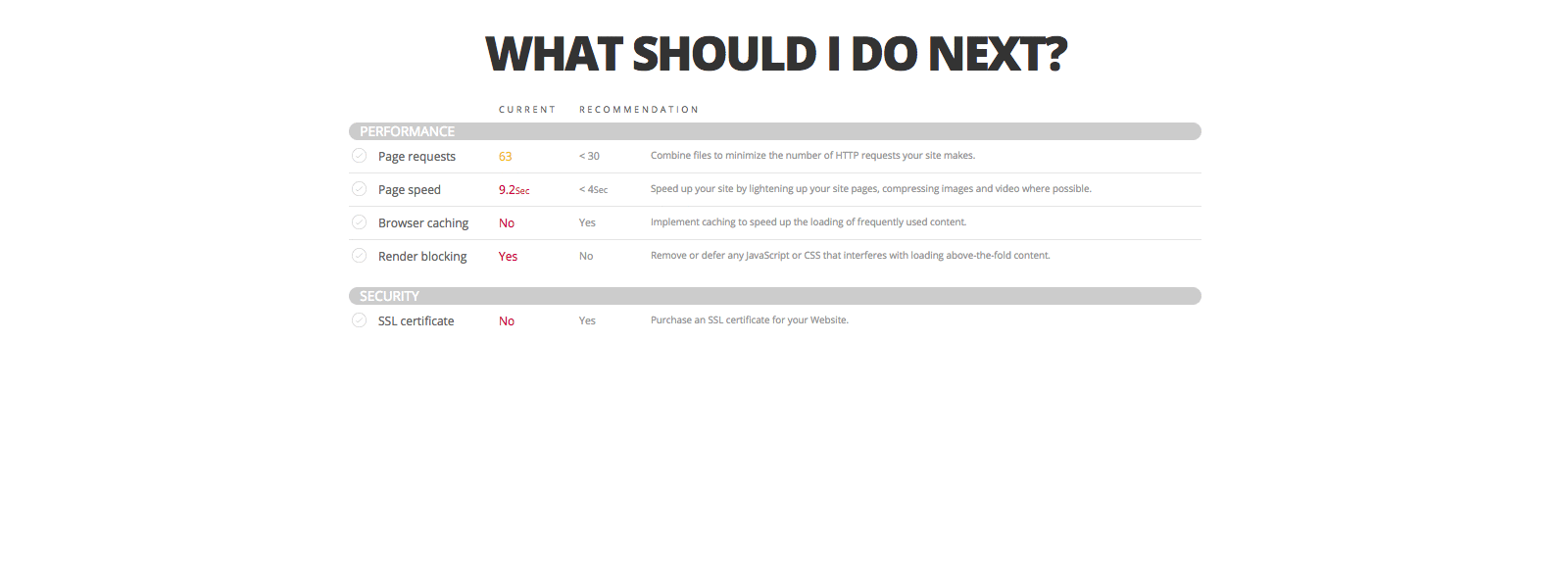Why is Website Speed So Important?
According to KISSmetrics, 47% of consumers expect a webpage to load in two seconds or less, and 40% abandon a website that takes more than three seconds to load
Optimizing your website's performance is crucial to increasing traffic, improving conversion rates, generating more leads, and increasing revenue. If your website is slow, you need to act.
Lots of things affect speed and performance
- Page Size - The heavier the site page, the slower the load. For optimal performance, try to keep page size below 3MB.
- Page Requests - The more HTTP requests your website makes, the slower it becomes. Combine files to minimize the number of requests made.
- Page Speed - Best-in-class webpages should load within 3 seconds. Any slower and visitors will abandon your site, reducing conversions and sales.
- Browser Caching - Browser caching speeds up your website by storing frequently used content in local memory.
- Page Redirects - Page redirects add an additional loading cycle, increasing the time to display the page.
- Compression - When your JavaScript and CSS are properly compressed, it makes your website run much faster.
- Render Blocking - Remove or defer JavaScript and CSS that interferes with loading above-the-fold content.




